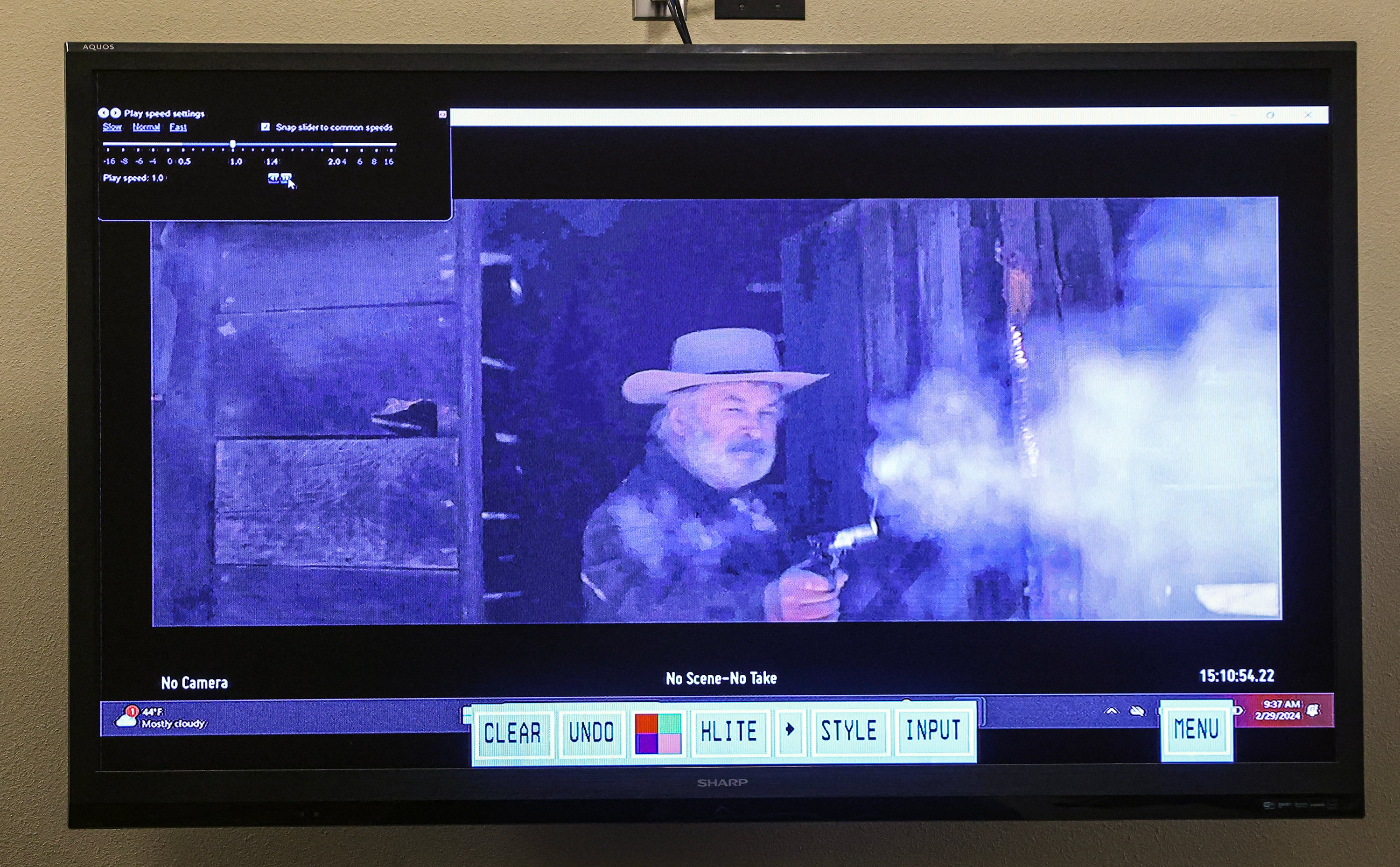Alec Baldwin’s attorneys say destruction of gun used in Rust shooting merits dismissal of case
Defence attorneys say FBI has destroyed crucial evidence that could have been used to exonerate actor from fatal shooting of cinematographer on set of Rust
Defence attorneys for Alec Baldwin are seeking to scuttle an involuntary manslaughter trial against the actor-producer in the fatal shooting of a cinematographer during rehearsal for the Western movie Rust.
Baldwin’s lawyers argue in a motion seeking to dismiss the charge that the firearm in the shooting was heavily damaged by FBI forensic testing before it could be examined for possible modifications that might exonerate the actor.
New Mexico Judge Mary Marlowe Sommer is scheduled to hear arguments on Monday. Baldwin's trial is scheduled to begin next month.
Baldwin’s attorneys contend that authorities took what they described as the most critical evidence in the case – the firearm – and destroyed it by striking it with a mallet as part of a forensic analysis.
During the fatal rehearsal on 21 October 2021, Baldwin was holding the gun on a movie-set ranch when it went off, killing Halyna Hutchins and wounding director Joel Souza, who survived. Baldwin says he pulled back the gun’s hammer but did not pull the trigger.

Prosecutors plan to present evidence at trial that they say shows the firearm “could not have fired absent a pull of the trigger” and was working properly before the shooting.
Defence attorneys are highlighting a previously undisclosed expert analysis that outlines uncertainty about the origin of toolmarks on the gun’s firing mechanism.
Baldwin has pleaded not guilty to the involuntary manslaughter charge, which carries a maximum sentence of 18 months in prison.
Armourer Hannah Gutierrez-Reed was convicted in March of involuntary manslaughter for her role in the shooting and was sentenced to 18 months in prison. During the trial, an FBI expert testified the gun was fully functional with safety features when it arrived at an FBI laboratory. The expert said he had to strike the fully cocked gun with a mallet and break it for the gun to fire without depressing the trigger.
On Friday, the judge denied prosecutors’ request to use immunity to compel testimony from Gutierrez-Reed at Baldwin's trial. Her statements to investigators and workplace safety regulators will likely feature prominently in Baldwin's trial.

Further testimony could be limited by the armorer's reluctance to testify, and the judge said Friday that other witnesses can fill in most of the gaps if Gutierrez-Reed doesn't testify.
While Marlow Sommer provided ni indication of how she would rule, she told both parties to proceed as if the case will go forward.
“Do not think that that means stop working for trial,” she said.
The trial is expected to last eight days in court, and testimony is scheduled to start 10 July and end on 19 July.
Also during Friday's hearing, Marlowe Sommer ruled against a request by defence attorneys to dismiss the trial because they said Baldwin had no reason to believe the gun could contain live ammunition and wasn't “subjectively aware” of the risks.
Last year, special prosecutors dismissed an involuntary manslaughter charge against Baldwin, saying they were informed the gun might have been modified before the shooting and malfunctioned. But they pivoted after receiving a new analysis of the gun and successfully pursued a grand jury indictment.
Bookmark popover
Removed from bookmarks